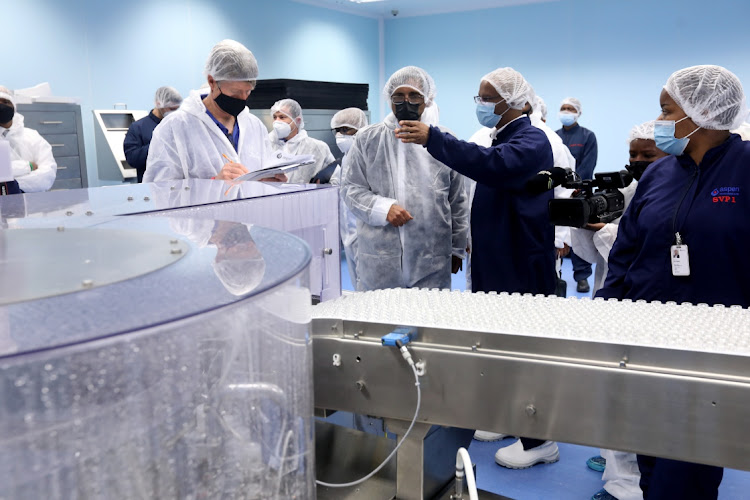In a pivotal agreement poised to transform diabetes care across sub-Saharan Africa, Danish pharmaceutical giant Novo Nordisk and South African generic drug manufacturer Aspen have embarked on a groundbreaking partnership. This collaboration not only aims to significantly enhance the supply of insulin in the region but also involves the transfer of production rights and technology to Aspen.
Read Also: Kenya launches smart Primary Care Network with 100,000 health promoters
Expanding Access to Insulin Across Sub-Saharan Africa
The cornerstone of this historic partnership revolves around augmenting the availability of insulin across sub-Saharan Africa. Novo Nordisk, a global leader in diabetes care, has taken a bold step to bolster its production capacity dramatically. By next year, it aims to provide insulin for an estimated 1.1 million individuals living with diabetes in sub-Saharan Africa.
This remarkable initiative more than doubles the current reach, which caters to the needs of approximately 500,000 people. By 2026, the collaborative efforts of Novo Nordisk and Aspen aspire to address the insulin requirements of an impressive 4.1 million diabetes patients across the African continent, spanning both type 1 and type 2 diabetes.
Crucially, this partnership embodies the principles of sustainability and equity. The agreement stipulates that Novo Nordisk commits to a minimum purchase obligation of €195.5 million from Aspen, spanning the period from 2024 to 2028. This substantial investment underscores Novo Nordisk’s unwavering commitment to ensuring access to essential diabetes treatments at an affordable cost. The initiative aligns seamlessly with Novo Nordisk’s sustainable business integrated model, known as iCARE. Through this model, Novo Nordisk is steadfastly dedicated to maintaining the maximum price of human insulin at a mere $3 per vial, making it accessible to a broader population.
Empowering Local Production and Supporting a Global Initiative
Beyond expanding access, this partnership holds great significance for the African Union’s Pharmaceutical Manufacturing Plan for Africa. By fostering local insulin production, storage, and distribution, the collaboration underscores the commitment to advancing healthcare on the African continent. This initiative heralds more equitable access to life-saving diabetes care, thereby aligning with global efforts to combat diabetes.
The announcement of this monumental partnership transpired during health-related discussions at the United Nations in New York. The World Health Organization (WHO), through its WHO Global Diabetes Compact, played an instrumental role in promoting this collaboration. Launched two years ago, the compact has been a driving force in advocating for increased insulin access globally.
WHO Director-General Dr. Tedros Adhanom Ghebreyesus emphasized the urgent need for improved insulin access, particularly in low- and middle-income countries. Dr. Tedros highlighted the stark reality that half of those who require insulin for diabetes management currently lack access. In Africa alone, there are presently 24 million adults living with diabetes, and this number is projected to exceed 55 million by 2045. This partnership represents a significant stride towards addressing this critical healthcare challenge.
DRC startup Nuru secures $40 million to build mini-grid in sub-Saharan Africa
Enthusiastic Government Support and Prospects for Future Growth
The South African government has warmly welcomed this partnership, emphasizing its potential to not only enhance insulin production but also stimulate additional opportunities for licensing and manufacturing of essential medications. South Africa’s Minister of Trade and Industry, Ebrahim Patel, commended the agreement, highlighting its importance in enabling local production of human insulin. Moreover, he underscored the broader potential for the development and production of various crucial medications.
The insulin production process will capitalize on Aspen’s sterile infrastructure in Gqeberha, South Africa. Notably, this infrastructure previously played a role in Aspen’s endeavors related to COVID-19 vaccine production. This concerted effort reflects a shared commitment to delivering sustainable and quality healthcare to individuals across sub-Saharan Africa and beyond.




